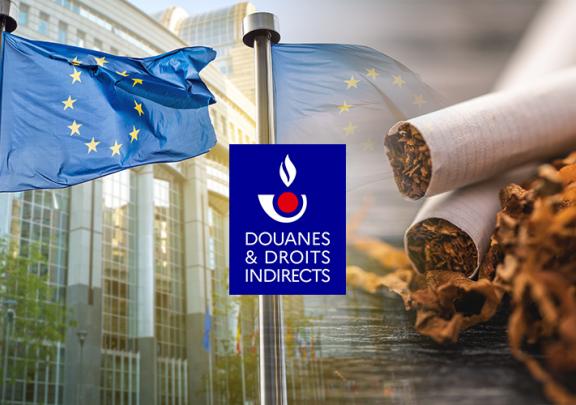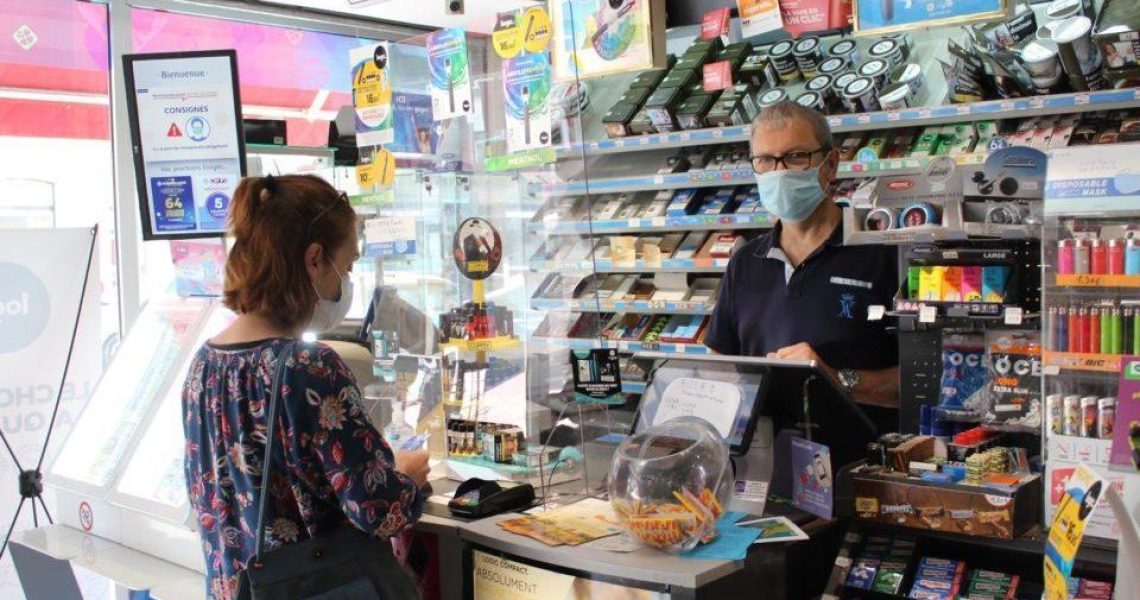Behind every packet, a network far more complex than imagined
💭 Have you ever wondered who actually supplies the cigarettes sold at your favorite tobacconist’s?
Every day, thousands of tobacconists in France offer the same products, at the same prices, under the same brands. But who orchestrates this well-oiled system?
Behind the tobacconist‘s counter, in reality, lies a meticulous organization, closely supervised by theState, customs, and companies strictly authorized by regulations.
👉 In this article, we lift the veil on the tobacco circuit, from the producer to your tobacconist, via factories, authorized distributors and government departments.

Tobacco: a highly monitored business in France
In France, the sale of tobacco is not a commercial activity like any other.
It is a State monopoly, governed by a specific decree, the General Tax Code and the Customs Code.
Each tobacconist’s shop operates under the direct supervision of the General Directorate of Customs and Indirect Rights.
It is therefore theState, via its customs administration, which authorizes the operation of tobacconists and controls cigarette distribution.
Tobacconists do not own the tobacco they sell: they are authorized resellers, bound by a management contract signed with customs.
This means that behind every tobacconist is a genuine state license.
And any resale of tobacco products without this authorization constitutes a serious infringement of the customs code.
Who are the suppliers of cigarettes sold in France?
Cigarettes and other tobacco products (rolling tobacco, cigars, pipe tobacco, etc.) come from large factories in France and around the world, but their distribution is strictly regulated.
According to an official Customs report, only certain companies are authorized to supply tobacconists.
These distribution companies work directly with Customs, who set the formalities, obligations and duties applicable to each retailer.
The main approved suppliers include :
- Seita Imperial Brands, spun off from the former Manufacture des Tabacs d’État,
- Philip Morris France, a subsidiary of the international Philip Morris International group,
- Japan Tobacco International (JTI France),
- British American Tobacco (BAT),
- And Landewyck France, a long-standing player in the European market.
These companies are responsible for the manufacture, conformity and delivery of cigarettes to tobacconists via a logistics network under the constant control of the Customs Department.
State-contracted tobacconists
Each tobacconist signs a management contract with customs, which specifies his obligations:
- Respect price and sales regulations,
- Do not resell products to third parties,
- Keep your establishment in compliance with the articles of the Customs Code,
- And follow the training courses required by theadministration.
This contract is renewable every three years, subject to the tobacconist’s good conduct.
A tobacconist’ s manager is therefore not a conventional businessman: he acts on behalf of theState, in the name of the public service.
Tobacconists are often associated with other commercial activities (press, drinks, games, light catering), but cigarette sales remain their core business.

The central role of customs and excise
The Customs and Excise Department is the key player in the system.
It oversees the manufacture, distribution and sale of manufactured tobacco.
Its role is to guarantee traceability, monitor regulations, collect excise duties and prevent smuggling.
Each pack of cigarettes sold in France carries a specific traceability code, enabling its journey from the factory to the retailer to be tracked.
This measure has been reinforced by a European decree, as part of the fight against illicit trade.
👉 To put it plainly: no legal cigarette can be sold without passing through customs control.
Thestate then collects tobacco taxes, which account for a significant proportion of public revenue.
State-set tobacco prices
Unlike other consumer products, tobacco prices in France are not free.
They are set by customs, after validation by the Ministry of the Budget.
Each brand registers its prices with theauthorities, who publish them by official decree.
Authorized tobacconists and resellers must apply these fixed prices.
No resale below or above this price is authorized.
This system guarantees national equality: a cigarette costs the same in Paris, Marseille or Lille.
Obligations and responsibilities of tobacconists
Tobacconists are public managers under contract with theState.
They must comply with a number oflegal obligations:
- Displaying health prevention articles,
- Compliance with rules governing sales to minors,
- Register of tobacco products sold,
- And compliance with public health regulations.
Failure to comply may result in administrative sanctions, or even withdrawal of the sales license.
The tobacconist must also ensure that he does not promote tobacco, in accordance with advertising regulations.
A regulated but changing business
Today’s tobacconists face a major challenge: the decline in cigarette consumption and developments in the nicotine world (e-cigarettes, heated tobacco, etc.).
To maintain their business, some tobacconists are diversifying their offer: press, telephony, drinks, scratch cards or vaping products.
Thecustoms administration, aware of these changes, is supporting this transition through processing aids, so that businesses remain viable in the context of the fight against smoking.
Tobacco, health and society: a delicate balance
France has put in place strict regulations to control tobacco sales, protect public health and guarantee market transparency.
Each establishment must comply with the legal obligations imposed by the customs and excise code.
But despite this surveillance, tobacco remains a dangerous product, responsible for over 75,000 deaths a year.
As local players, tobacconists are at the heart of a regulated activity, but also of a public health debate.
Conclusion: a strictly controlled network at the service of the State
Behind every cigarette sold lies a state organization where every outlet, every retailer, every company is subject to a contract, formalities and strict regulations.
From the factory to customs, from the tobacconist to the regional directorate, everything is governed by the French General Tax Code andthe French Customs Code.
A system that is unique in the world, where tobacco remains both a tax source and a public health issue.
